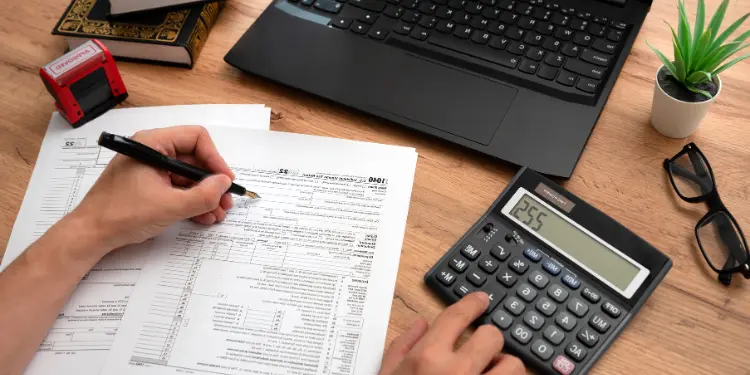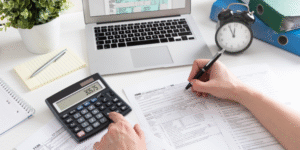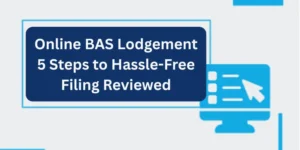A taxation return (tax return) is the annual form where you report your income, expenses and other tax information to the Australian Taxation Office (ATO). Lodging your tax return correctly and on time is important to avoid penalties and ensure you receive any refund due. This guide outlines who needs to lodge, key dates, and steps to complete your tax return accurately.
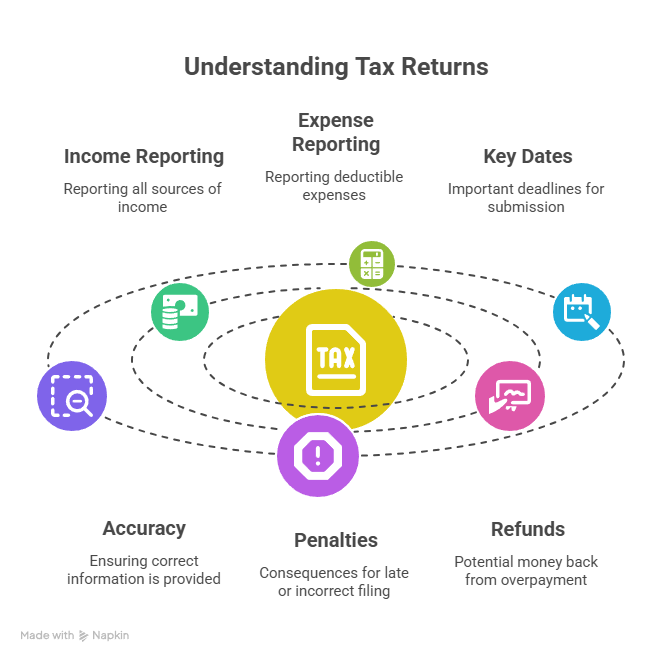
Who Needs to Lodge a Tax Return?
Most Australian residents who earned income during the financial year (1 July to 30 June) need to lodge a tax return. This includes salary and wage earners, self-employed people, and those who received investment income. Even if tax was withheld from your pay, you still must lodge so the ATO can determine if you get a refund or need to pay more. Generally, you don’t need to lodge if your income was below the tax-free threshold (currently $18,200) and you had no tax withheld – however, you may instead submit a non-lodgment advice to inform the ATO you won’t be filing a return. If in doubt, use the ATO’s online ‘Do I need to lodge?’ tool.
When is the Tax Return Due?
The standard due date for individuals lodging themselves is 31 October after the end of the financial year (ATO, 2025). If you use a registered tax agent (and sign up with them by 31 October), you will typically have a later lodgment deadline (often as late as 15 May of the next year). Missing the deadline without an approved extension can incur Failure to Lodge penalties. If you need more time, contact the ATO or your agent before 31 October to request an extension.
How to Lodge Your Tax Return
You have a few options for lodging:
- Online via myTax: This is the ATO’s free online lodgment service accessible through your myGov account. It’s suitable for most individual taxpayers and will pre-fill much of your information (salary, interest, health fund info) by late July for you.
- Using a registered tax agent: Many Australians use tax agents (accountants) to prepare and lodge their returns. An agent will ensure you claim all eligible deductions and handle the paperwork. If you’re not confident or your situation is complex (rental properties, multiple income sources, etc.), an agent can be worthwhile. Always use a registered tax agent (listed with the Tax Practitioners Board) for advice and lodgment.
- Paper tax return: A paper form can be mailed to the ATO, but this method is slower and not recommended unless you have no internet access.
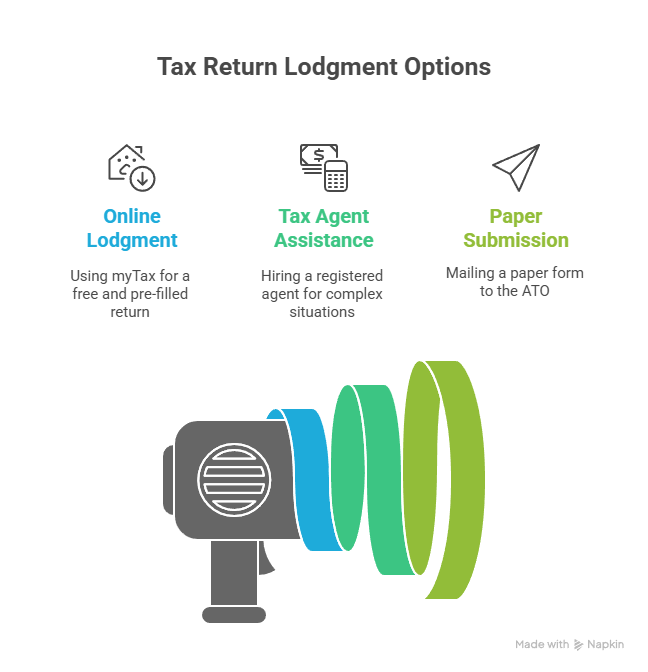
Steps to Lodge Accurately
- Gather and verify income information: Collect all income records (PAYG income statements from employers, bank interest, dividends, government payments, etc.). Use myTax or your agent to cross-check this information – by late July, most data is pre-filled by the ATO. Wait until that information is available to ensure you don’t omit any income.
- Claim deductions with evidence: Identify the deductions you can claim (e.g. work-related expenses, union fees, donations). Only claim what you’re entitled to and keep receipts or records in case the ATO asks for proof. If you worked from home or have vehicle expenses, use the appropriate ATO method to calculate your deductible amount and meet any substantiation requirements.
- Review and lodge: Double-check all personal details (like your TFN and bank account) and ensure no income or deduction is missed or entered incorrectly. If lodging via myTax, the system will flag some common errors – address any alerts. Once you’re satisfied everything is correct, submit your return electronically through myTax (or have your agent lodge it). Save a copy of your lodged return.
- Follow up on your Notice of Assessment: The ATO usually processes online returns within two weeks. You’ll receive a Notice of Assessment showing your final tax outcome. If you’re getting a refund, it will be deposited to your bank account (ensure your bank details are correct). If you have a tax bill, note the payment due date (usually 21 days after issue) and pay by that date to avoid interest. If you can’t pay in full, contact the ATO to arrange a payment plan.
Avoiding Common Mistakes
- Lodging too early: Don’t be in a rush to lodge on 1 July. Lodging too early (before all your income is reported) can lead to omissions and the need to amend later. The ATO recommends waiting until pre-fill data is ready.
- Over-claiming or guessing deductions: Only claim what you’re entitled to. The ATO’s data analytics are sophisticated – they compare your claims to benchmarks for similar occupations. Unsubstantiated or unusually large claims can trigger ATO scrutiny (audits or delays). If you’re unsure about a deduction, check ATO guidance or ask a tax professional.
- Not keeping records: Keep copies of your receipts, invoices, and your Notice of Assessment. You generally need to keep records for five years from lodgment. Good record-keeping ensures you can substantiate your claims if asked.
- Ignoring ATO follow-ups: If the ATO contacts you with questions or adjustments to your return, respond promptly. Be timely or get your agent’s help to sort it out.
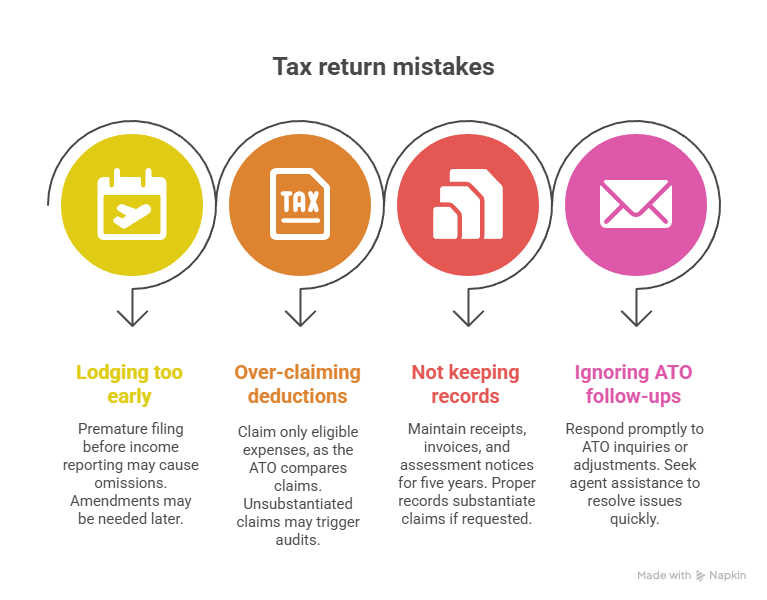
Lodging an accurate tax return gives you peace of mind and helps you get any refund you’re owed faster. With the above steps and a bit of care, you can confidently tackle your annual taxation return. And if it still feels daunting, remember that tax agents are there to assist and can take the stress out of tax time – our tax return accountant guide explains how a professional can help maximise your refund.
Master your taxation return with ease. TTS & Associates can guide you—Contact Us today to lodge correctly.
